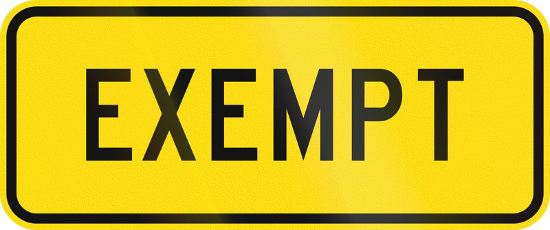
Have you been terminated from your job but found that your boss has either refused or failed to pay your final check in a prompt manner? If so, then you are a victim wage theft, which happens to be a crime in California.
California labor law penalizes employers that withhold earned pay from their employees on termination or resignation. Labor Code § 203 assesses a “waiting time penalty” against an employer for each day that the company delays or withholds the last payment after termination. Both exempt and non-exempt Employees are entitled to these penalties, which in many circumstances can provide a substantial amount of extra pay for aggrieved workers. You’re about to learn about all of it.
This is an article about your right under the law to be paid in full upon discharge or resignation. By the end of the article you will learn how to calculate and recover the penalties your former employer owes you for withholding your earned wages.
Table of Contents:
When Must My Employer Pay Me If I’m Terminated?

California laws provide penalties against employers for failing to promptly provide an employee a final check on termination or discharge. Under California Labor Code section 201 & 202, wages that were earned by an employee and unpaid when the employer fired or otherwise discharged the employee are due and payable immediately on the employee’s last day of work.
Earned wages for purposes of the law also include earned and unused vacation, missed meal breaks and rest periods, as well as overtime. Your employer has a legal duty to immediately pay you all earned wages when you are involuntarily terminated, released after completing a job assignment, or released after the expiration of the time period for which you were hired.
The law does not exclude short-term, part time, temporary, or exempt employees from this protection. Simply put, your employer must pay you all earned wages that were outstanding to you during your employment on your last day of work. A simple way to remember this is “final day equals final pay.”
What If I Voluntarily Quit?
The final pay California rules that apply are different depending on whether you provided sufficient notice under the law to your employer before resigning. If you provided more than seventy-two hours of notice to your employer prior to quitting your job then your employer must pay you on your last day of work. Employees who do not give their company more than 72 hours of notice must be paid within seventy-two hours after their final day of work .
Furthermore, employees who quit their jobs without providing seventy-two hours of notice are entitled to receive their final paycheck in California by mail if they have provided the employer with a designated address.
Where, And How Must I Be Paid?

Labor Code § 208 governs the location of payment upon termination or resignation. The code states that if an employer terminates an employee, then the place where the employee must receive his or her last pay is the location of discharge. Therefore, if you regularly work at your company’s Los Angeles office but were terminated while visiting its San Jose office, then your employer must pay you at that San Jose office. Further, if you quit, you must be paid at your employer’s office in the county in which you were performing labor. Finally, If you previously authorized your employer to direct deposit into your bank account, then direct deposit will be a legally accepted method. (See Labor Code § 213(d).)
Strict Application Of The Law
Courts have ruled that statutes that have put in place to ensure employers promptly pay California employees must be given a “reasonable, although necessarily strict construction.” Courts, building on this rule, also have held that industry habit or custom of delaying final payment does not affect the time limits set out by the labor code.
For example in the case of Smith v. Sup.Ct. (L’Oreal) (2006) 39 C4th 77, 90, 45 CR3d 394, 403, the court held that industry practice of waiting until a photographer/employer was paid by an advertiser before a fashion model was irrelevant. The photographer who hired the fashion model for a one-day project must have paid her at the end of the assignment.
Can I Get Waiting Time Penalties For The Delay?

Yes, to ensure that employers quickly pay their workers at the conclusion of employment, California enacted Labor Code 203, which provides an assessment of penalties against an employer when an employee is discharged or quits, and the employer willfully fails to pay all earned wages due to the employee. These penalties, understandably are called “waiting time penalties” because they are meant to compensate the employee for having to wait for payment. They provide that the employee’s daily wages continue at the same rate until paid or until a lawsuit is filed. There is a cap of thirty days on the total amount of penalties that can accrue. Further, these penalties accrue on a daily basis, not only on days that the employee might have worked but also on nonworkdays. This is crazy: it means that you can potentially walk away with more than a month worth of pay even after you were fired or quit.
What Is Willful Failure To Pay?
“Willful failure to pay” means that the employer knew what it was doing, and intentionally failed or refused to perform an act that was required to be done. It does not necessarily require that the employer maliciously intended to defraud its employees.
How Do I Calculate These Penalties?

Formula: (daily rate of pay)x(number of days employer was late in pay all earned wages due, up to a maximum of 30 days)=Penalties Due.
As previously mentioned, the law states that the Labor Commissioner or a court must impose a penalty of up to 30 days of pay for the employer’s willful failure to pay wages due to a discharged or resigned employee. In other words, the employee’s wages continue to accrue at the same rate from the due date until paid or until a lawsuit is commenced.
Step 1: To calculate these penalties, you must first calculate your daily rate of pay (otherwise known as your daily wage). To calculate your daily rate of pay, you must include all of your compensation, including commissions, bonus, or piece-rate compensation, in addition to your base hourly rate. (Department of Labor Standards Enforcement Opinion Letter 2003.01.28.) Overtime is considered but only if it is regularly scheduled each week, and infrequent overtime, is not considered in calculating daily rate of pay.
Step 2: Multiply the daily rate calculated in Step 1 by the number of days that the employee was not paid, up to a total maximum of 30 days. The 30 thirty day period is calendar days, which includes weekends and holidays. Actual payment or the commencement of an action stops penalties from accruing..
What Other Types Of Unpaid Wages Trigger These Penalties?
Unpaid Overtime: The Labor Code requires that employers pay all wages due to their employees upon termination. Overtime pay is considered an earned his or her wages. The Department of Labor Standards Enforcement, therefore, maintains that penalties should be imposed when an employer terminates an employee without paying the employee previously earned overtime pay. Often there is a misconception that penalties are limited to wages withheld during the last pay period. In reality, any and all wages previously withheld during the employment relationship must be paid immediately upon termination, and within 72 hours of resignation. In some circumstances, Employers may argue that overtime and wages have different sources, and therefore waiting time penalties do not apply. You can learn more about overtime rights by clicking here.
Unused Vacation Time: The law treats vacation pay the same as other forms of compensation at termination. Accrued but unused vacation must immediately be paid out to you upon your termination and within 72 hours of your resignation (if notice was not provided 72 hours prior). If you are not paid all accrued vacation at the time you are fired, your employer may be liable for penalties. Your employer may not utilize “use it or lose it” vacation policies as they are illegal in California. Simply put, your company must compensate you for any unused vacation time upon your termination. In fact, Labor Code § 227.3 states “[A]n employment contract or employer shall not provide for forfeiture of vested vacation time upon termination.” (See Amaral v Cintas Corp. No. 2 (2008) 163 CA4th 1157, 1206 (upholding penalties against employer for violations of Lab Code §227.3). Learn more about California vacation law.
Missed Lunch & Rest Breaks: Missed Lunch & Rest Breaks: Extra pay premiums that result from missed meal and rest periods are also considered earned wages that must be paid to you immediately upon termination, or within 72 hours of resignation. If your employer did not provide you with adequate meal or rest periods during your employment, then under Labor Code section 226.7, it must provide you with extra pay (1 hour of pay for each lunch or rest break missed) upon your termination or resignation (read more).
Unpaid Commissions & Bonuses: Unpaid commissions and bonuses may also trigger penalties depending on your employment agreement.
Bounced Final Check: If your employer provided you with a California final paycheck that was dishonored or refused you may be entitled to penalties. The check must have been drawn on a nonexistent bank account or an account with insufficient funds. Furthermore, you must have presented the check within thirty days of your receipt of the check. (See Labor Code § 203.1.)
How Long Do I Have To Bring A Claim For These Penalties?
Labor Code Section 203 provides that the statute of limitations for waiting time penalty claims is three years. In the case of Pineda v Bank of America, N.A. (2010) 50 C4th 1389, the California Supreme Court held that the three-year statute of limitations also applies if the employee has already been paid all wages owed and the claim is only for the actual penalties that are outstanding.
Good Faith Is A Defense
A good faith dispute that any wages are due to an employee can preclude imposition of penalties against an employer.
Rights Cannot Be Waived By Agreement
Sometimes companies will deviously attempt to dupe their workers into believing that by signing a written contract, they have effectively waived their right to be promptly paid. California courts, however, have been unequivocal in ruling that an employee’s right to timely payment of wages on termination may not be waived. (Balcorta v Twentieth Century Fox-Film Corp. (9th Cir 2000) 208 F3d 1102.)
Therefore it should serve as a red flag if your former company has tucked language in its employee handbook, employment application, or a separate agreement, stating that payment will be tendered at a later time than what the law requires. Such an action would indicate that your employer has a systematic policy of withholding money to its employees. It is important to note that a closer look at its policies and payroll practices will likely show additional violations that will likely provide further sources for penalties that may provide compensation to you.
Rules Unique to Specific Industries
There are many exceptions to these rules. Only actual employees are entitled to penalties. Independent contractors are exempt. In addition to this specific industries have specific rules that are unique to them:
Agricultural Industry:
Employers who lay off seasonal employees who work with canning, or drying of perishable fruit, fish, or vegetables will are considered to have made immediate payment if the employees are paid within a reasonable time, not exceeding 72 hours. This “reasonable time” should allow for the wages to be calculated and tendered. (Lab C §201(a).) Employees must have their payment mailed to them when they provide a mailing address and request delivery by mail. Lab C §201(a).
Film Industry:
Short term employees engaged the in motion picture production or broadcasting, are entitled to receive payment of their earned wages by the employer’s next regular payday following termination. (Lab C §201.5(a)–(b).) Payment may be mailed to the employee or made available at a location specified by the employer in the county where the employee was hired or did the work. (Lab C §201.5(c).) Alternative provisions for final payment may exist for employees working under a collective bargaining agreement. Lab C §201.5(e).
Oil Industry:
An employer who lay off employees engaged in oil drilling may make payment within a “reasonable time.” “Reasonable time” means sufficient time to allow for the wages to be calculated and paid, but in no event exceeding 24 hours from discharge, excluding weekends and holidays. (Lab C §201.7.) Payments can be mailed. The time of mailing constitutes the date of payment. (Lab C §201.7.)
Live Entertainment:
Employees working at a venue that hosts live theater or concert events that are enrolled in and dispatched through a hiring hall or other system of short-term employment established under a bona fide collective bargaining agreement can be subject to different time limits as provided in the bona fide collective bargaining agreement. (Lab C § 201.9.)
Should I Hire an Attorney?

You want to know how you can make a claim against your employer, so here is the deal, the primary question you should ask yourself is whether you will hire an attorney to represent you, or go at it alone. You should put a significant amount of thought into this. Most individuals who pursue wage and hour lawsuits hire attorneys. Here are some important reasons why:
1.) Most employment lawyers work on a contingency fee basis. This means that the lawyer for unpaid wages that you hire will advance costs, and if you win, will take a percentage of the recovery as attorney fees. If you don’t win, then you simply don’t pay any attorney fees. Contingency fees are negotiable and generally range from 25-40%. That way, you don’t pay the attorney hourly, nor do you have to pay them anything up front. Most of the financial risk is shifted to the attorney who will have a big incentive to work as hard as possible to win the case.
2.) Filing your claim with the California Labor Board (better known as the Division of Labor Standards Enforce or DLSE) can be time-consuming and intimidating. You will be expected to understand the law, and gather evidence. You will also be expected to testify under oath in a recorded proceeding, present evidence, call witnesses to testify, cross-examine the opposing party and witnesses, explain the evidence, and make coherent arguments in support of your position while also rebutting the opposing side’s arguments. For most lay people, this is a tall task, requiring navigation through legal minefields and other obstacles. Many times claimants will file a complaint only to be overwhelmed days before the Berman hearing. Thereafter they will frantically search for a lawyer to represent them only to find that most labor lawyers will not agree to retain them given the short time involved. Finally, most local DLSE offices are backed up, requiring delays of 12-15 months just to get your case to hearing. I myself have had horrible experiences bringing claims with the Labor Board. Most of the DLSE staff that oversee the notice of claim and conference are not even licensed attorneys but are rather social workers. As a result many of them are not well versed in labor law and can provide misleading advice (even though they are not supposed to give legal advice). Some are even disgruntled because they are overworked due to Budgetary constraints caused by the State’s insufficient funding. Finally, although the DLSE allows a party to subpoena records and witnesses from the Defense or third parties, the law doesn’t provide for any kind of meaningful enforcement mechanism (such as a court order) compelling compliance. THE DLSE doesn’t even allow for Plaintiff’s to recover their attorney’s fees and costs if they prevail and Superior Court does. Even if you win in a Berman hearing the opposing party still can appeal the case to Superior Court where it will be heard De Novo (meaning there will be a new trial with a new judge) where you will be back to square one. There are many advantages to going through civil court. Too many to list here.
3.) Settlement agreements can bring up complex issues. When it comes time to settle, having to review a settlement agreement can be very difficult for a layperson with no employment law experience. Often times employers will attempt (through experienced counsel) to stack as many one-sided provisions as possible to undermine your rights. Hiring a labor lawyer will ensure that your settlement agreement is reciprocal in rights/duties and that the necessary ingredients are there to protect you to the maximum extent possible. Employers often require claimants to sign broad releases that waive their rights to file lawsuits for other claims. Hiring a lawyer to review the facts can help you ensure that you are not waiving away other important high value claims. Often times Plaintiffs will assume that a particular claim has a low dollar value, only to learn later that other rights were violated also violated (i.e. overtime, rest beaks, etc). It may be too late at that point to ask for more money.
4.) Hiring a labor lawyer to handle your case can help make sure the results are not overturned or the judgment set aside by a court later on. Most businesses these days will hire an attorney to represent them in legal claims brought by their former employees. Do you know how tough it can be to go up against a licensed lawyer with years of experience when you are a layperson? Do you have the know how to perform legal research if complex questions come up as they typically do in employment matters? Do you even have access to expensive legal databases like Westlaw or Lexis to do the research? Making mistakes or failing to do sufficient research can mean an award and judgment thrown out later on even if you win. Making critical errors can also mean that a lucrative claim is flushed down the toilet. You will be able to sleep much better at night knowing that you have someone knowledgeable on your side that actually knows what they are talking about.

